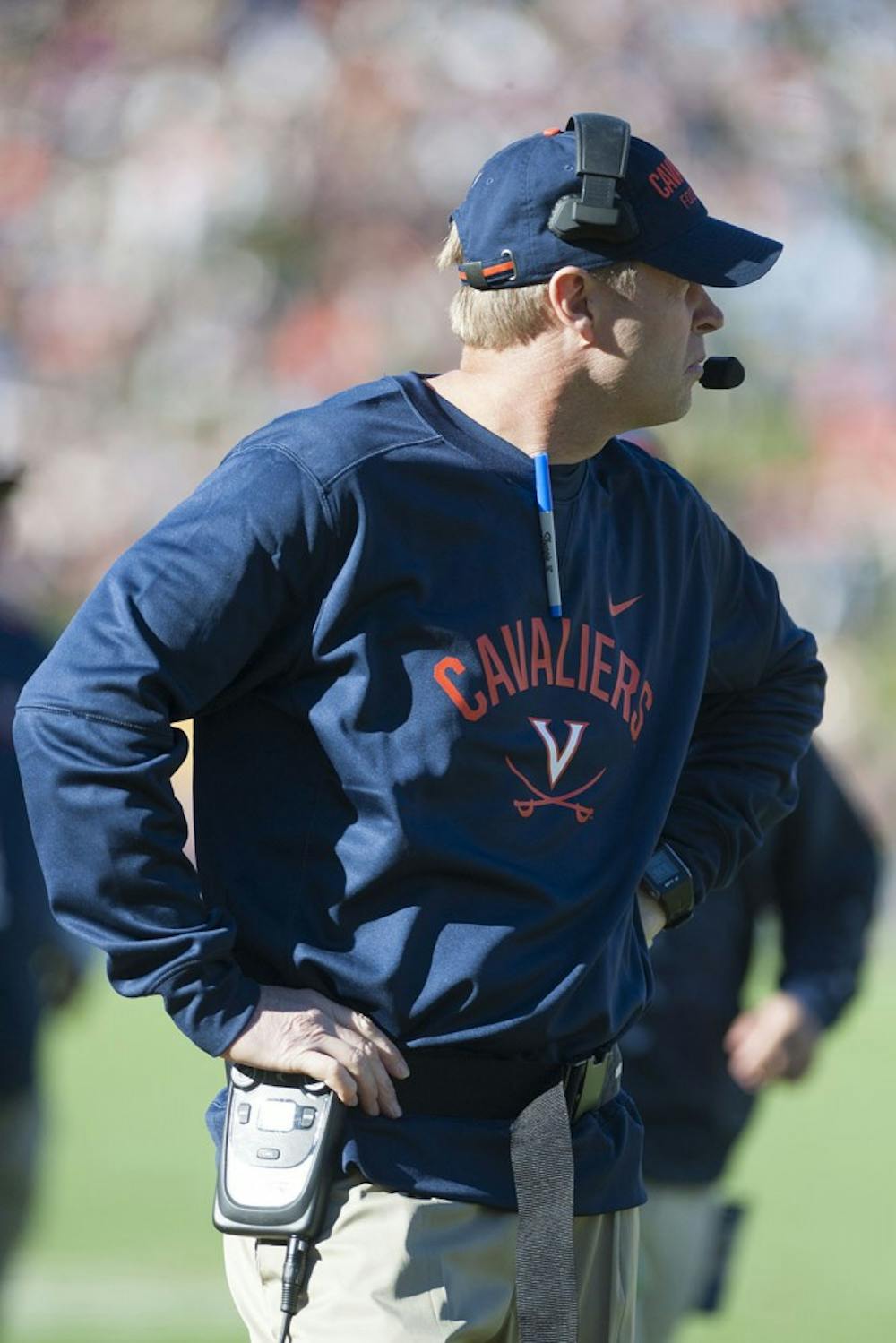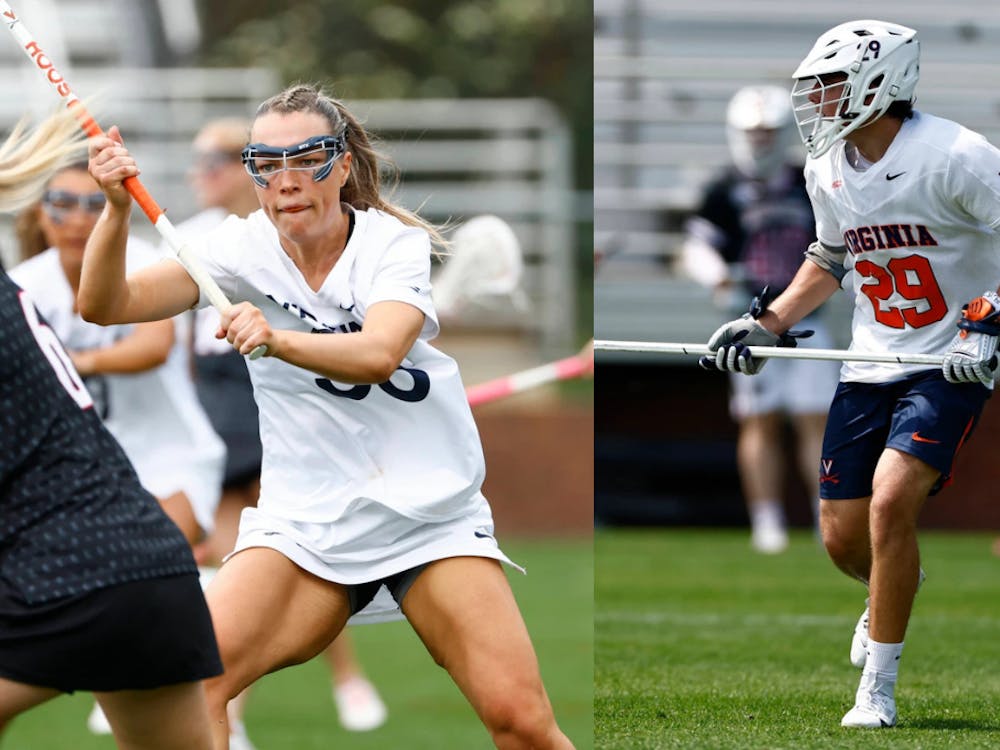When coach Bronco Mendenhall was hired at the end of last season, no one was under any illusions that the program was ready for takeoff. Virginia was coming off four straight losing seasons and hadn’t won a road game since 2012.
The team had some talented, NFL-caliber players dispersed throughout the roster, but the depth chart was rather thin. Mendenhall inherited no surefire starter at quarterback and a team that had a penalty habit, committing over 7 penalties a game for a total of 766 yards.
Both Mendenhall and Cavalier fans alike were aware of this, however, and nobody expected the on-field talent to be at a BCS Bowl level this season. Fans knew they had to be patient and give Mendenhall time to implement his system. While many were prepared for some ups and downs, I don’t think anyone expected the transition to be this hard.
Virginia’s performance so far this season has fallen well short of expectations. Las Vegas set Virginia’s win expectations for the season at five. In order to meet that projection now, the Cavaliers would either need to beat multiple teams that are or have been ranked, or win out on the road, where Virginia has won exactly one of its last 18 games. The team is averaging fewer yards per play than last season, converting a lower percentage of its third downs at 35.85 percent, and has gone from making over three quarters of its field goals to only making half.
The reason for this failure to perform isn’t talent-based either. Using a five-year recruiting ranking to measure talent on the roster, Virginia ranks 48th in the country. Their performance this season, measured by advanced statistics that weigh strength of schedule and point differential like S&P+, rank Virginia 93rd. Based on the talent on the roster, the team’s performance this season is unjustifiably poor. Thus, I think there’s a deeper, underlying cause for the tougher-than-expected turnaround. Virginia has a losing football culture.
The first way in which this culture eats away at the program is in the locker room. Mendenhall himself noticed a lack of belief that the team could win immediately after taking the job.
"The entire message was dejection and despair," Mendenhall said. "They were desperate to have answers to win, and they certainly weren’t confident."
This showed in the blowout loss to Richmond to open the season, where Mendenhall lamented the team’s lack of resiliency. While the Cavaliers showed signs of progress, the loss to North Carolina this past week suggested a reversion to that despondency.
Of course, in a discussion of winning locker room culture, the allegations brought forth by former wide receiver recruit Aidan Howard have to be mentioned. He claims the team forced him to fight as a hazing initiation, leading to severe eye injuries and a concussion. If this is truly going on without Mendenhall knowing it, then Virginia is even further away from a winning culture than anyone imagined.
A football culture problem exists outside of the locker room as well, in an area Mendenhall is less capable of controlling. The fan base has become apathetic, the students in particular. When the Wall Street Journal measured student attendance of football games from 2009-13, they found Virginia had a decrease of 13.9 percent, and anecdotal evidence suggests the numbers have gotten even worse.
Overall attendance is down 4.7 percent this year too, as the Cavaliers are averaging roughly 41,000 attendees, meaning Scott Stadium is only two-thirds full. While the excitement of a new coach could’ve helped combat this, the season opener has been this year’s most attended game. The Cavaliers’ performance has driven fans away. While their record wasn’t good last season, nine games were within one score, whereas only one game has been this year. This year’s games are significantly less competitive and watchable.
So both inside the locker room and out, there’s a culture of losing at Virginia that’s making it harder than necessary for Mendenhall to succeed. The talent on the field hasn’t been taught how to win football games, even from a mental standpoint, and the fans’ indifference isn’t helping to change things.
Virginia’s losing football culture may be a bigger hurdle to success than anyone realized. While the task may be harder than Mendenhall anticipated, I still have faith that he’s the right man for the job. He has said all the right things, upping intensity and competition in the program. Additionally, he achieved plenty working at BYU working with less. Because of our culture, however, it just may take longer for him to be able to prove his abilities than fans had hoped.







